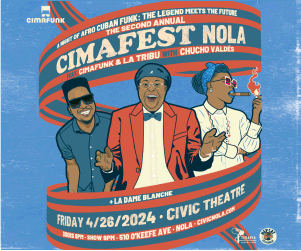The City of New Orleans is moving, albeit slowly, to re-evaluate its music policy.
On Tuesday, January 26, 2021, the City Planning Commission (CPC) met to discuss its recently completed draft study on outdoor live entertainment. This is an expansive document that addresses much more than just outdoor live entertainment, and takes better practices from other music hubs including Austin, Memphis, Nashville, San Francisco and Seattle. On the details of live entertainment regulation, there are solid suggestions and also several issues, such as overly restrictive limits on frequency of and timing events and requiring permits for private home “porch” concerts (New Orleans loves its permits, enforcing them, not so much), but what’s interesting is to look at the studies key takeaways, which include:
- A New Orleans Music Commission similar to the Austin Music Commission would provide an opportunity for music economy stakeholders to contribute to public policies and process.
- A Music Disaster Relief Fund (COVID-19, hurricanes, flooding, etc.) would help financially support the city’s local music economy during times of distress and natural disaster.
- A Live Music Fund would support local musicians more generally.
- A Music Census Report would provide policymakers with data related to the local music economy so that appointed and elected officials can make data-driven decisions.
- Institutionalizing a Music Office Review would formalize transparency, accountability and expediency in the review of music-related permits and potentially make the review process more predictable for applicants seeking permits.
- Establish a “Nightlife/Entertainment/Cultural Economy Advocate/Night Mayor” or similar position.
These are laudable goals, but the first question one has is “what are these doing in a City Planning survey of live entertainment?” The simplest answer is that this is a cry for help from inside the city bureaucracy. The current system is broken. The Mayor’s Office of Cultural Economy has shown no interest in addressing these larger concerns. The Arts Council is MIA, and into this vacuum independent musicians, venues, and service organizations are organizing themselves and coming up with their own solutions—but we need someone in the public sector to carry them out. It’s time for a new model.
OffBeat and Ella Project have long advocated for New Orleans to follow the path of other cities and establish a night time advocate, sometimes called a “Night Mayor,” a person charged with promoting and supporting the industry, and advocating for stakeholders in city planning, taxation, and general regulatory scheme. As live entertainment slowly returns, it’s absolutely essential to establish this office, and essential that it be independent of the Office of Cultural Economy. In cities where this Nightlife Advocate position has worked, the advocate’s work is often buttressed by independent boards and commissions (as referenced in CPC’s point 1 (above). The existing, separate working groups of independent musicians, venues, and service organizations provide an initial pool of stakeholders for this commission, and its creation both amplifies the voices of the music community and provides the needed independence for the night time advocate. This advocate also will address point 5, working with Safety and Permits to design an open, predictable permitting process less from the current perspective of the regulators, but bringing with them the perspective of the regulated.
For points 2 and 3 that focus on funding—and while we acknowledge that more funds are needed— the structure is key. In 2020, when the City transformed its tourism and marketing fund to include culture, there was a great fear that the design of the fund lacked accountability and could be used as an ATM for city government. Following the Lauren Daigle New Year’s Eve debacle, those fears were quickly realized. So while emergency funds and individual artist grants are essential, adding more water to a poisoned well is not a the solution. These funds can be block granted to an established, well respected funder like the Jazz & Heritage Foundation or Greater New Orleans Foundation, or an engaged grassroots group, but either way, an open, transparent RFP will find a qualified group who can successfully get needed funds in the hands of local musicians and venues.
Regarding the census mentioned in point 4, there is work from the recently concluded NOME Study financed by GNO Inc, the planned DDD study being launched by the Creative Alliance of New Orleans, and a planned census coming out of the Coordinating Resources group of local service providers. The fact that these three groups undertook three similar missions is indicative of the problem. Yes, the City needs a music census, but it needs to be one document, coming from one trusted entity. The Office of Cultural Economy has previously produced “Snapshots” and “Workers Surveys,” but the last of these appears to have been produced in 2016. The City’s current abdication of this role is further evidence that they are not engaged, nor are they interested in becoming engaged, and a new structure is needed.
New Orleans’ failed government is a cliché, a punchline in the gallows humor that permeates our town.
But this moment, as we see the re-opening of our live entertainment, is not the time for the cynical “What are ya gonna do?” shrug. Not only tourists, but our own citizens pine for live music, festivals, and a chance to leave their bubble, if only for a few hours. But to make this a symbiotic relationship, we have to create a new system that empowers our creative talent that gives so much joy to our people. We asked them to give without giving back support for so long. Let’s take the first steps to change that.




